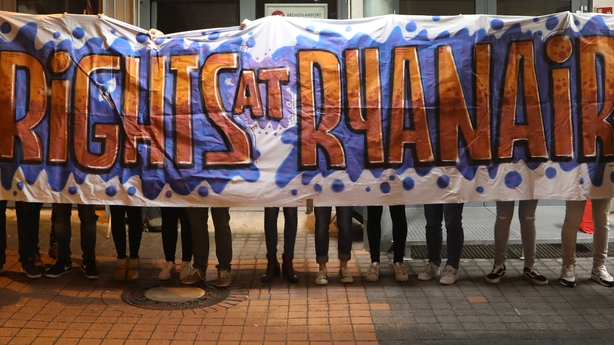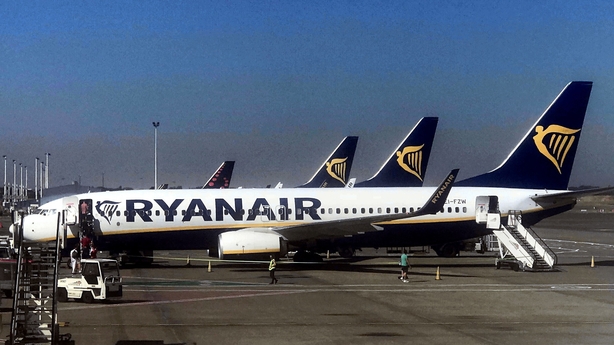Ryanair has apologised to customers affected by the cancellation of 150 flights in and out of Germany due to a strike by pilots and cabin crew.
The airline stressed that 252 of the remaining 254 scheduled flights to and from Germany operated as normal, thanks to staff who had "ignored union strikes".
Ryanair noted that despite the strike, it would today operate over 2,200 flights carrying more than 380,000 passengers, with a load factor of 92%.
The 24-hour strike by pilots and cabin crew based in Germany was announced on Monday night, and commenced early this morning.
The airline said all affected customers had been refunded or re-accommodated.
Ryanair recently reached agreement with pilots in Ireland following 5 days of strike action during hte peak summer period.
However, cabin crew unions in Italy, Portugal, Belgium, Spain and the Netherlands have threatened to stage a co-ordinated strike later this month if the airline does not change its business model.
It is understood they will announce details of planned industrial action tomorrow.
Meanwhile, in an unusual move, Ryanair has banned all media from its Annual General Meeting which is due to take place next Thursday.
Germany's Cockpit pilots' federation and the Verdi service workers' union called the 24-hour strike, which started at 3am local time, after they said talks with Ryanair management were deadlocked.
Ryanair has been clashing with worker representatives ever since it took the unprecedented step last year to start recognising trade unions in a bid to avert widespread Christmas strikes.
Last month, Ryanair pilots in five European countries including Germany held their first-ever simultaneous walkout, causing some 400 flight cancellations and travel chaos for 55,000 passengers.
Ryanair has however made some progress in clinching collective labour agreements since then.
It managed to strike a deal with Italian pilots over working conditions in late August, its first-ever union agreement.
Its Irish-based pilots voted to accept an agreement on improved working conditions last week.
That prompted Ryanair to back down from an earlier threat to move several aircraft and 300 jobs from Ireland to Poland.

Germany's Cockpit and Verdi unions, which represent some 400 Germany-based Ryanair pilots and 1,000 flight personnel, condemned the airline's attempt to squeeze them with a similar threat.
"This is how Ryanair deals with its employees: putting pressure on them, scaring them and threatening job losses," said Cockpit's vice president Markus Wahl.
Ryanair's chief marketing officer Kenny Jacobs said yesterday that further strikes would damage Ryanair's business in Germany and "lead to base cuts and job cuts".
"We are not making a threat," he told a Frankfurt press conference.
"If you have ongoing strikes, that's the economic impact."
The airline boasts lower costs per passenger than its competitors and is eyeing profits of around €1.25bn this year.
But staff have long complained that they earn less than counterparts at rival airlines.

Another key gripe of workers based in countries other than Ireland is the fact that Ryanair employs them under Irish legislation.
They say this creates huge insecurity for them, blocking their access to state benefits in their country.
Unions also want the airline to give contractors the same work conditions as staff employees.
Ryanair counters that it has already offered significant pay increases and steadier contracts. It said German pilots can make "up to €190,000 a year". But Cockpit's Markus Wahl said that only applies to "a handful" of people.
The basic starting salary for Ryanair pilots is closer to €39,000 a year, he said, while the most experienced pilots can take home around €110,000 a year in fixed pay. That can then be topped up depending on flight hours.
Mr Wahl said pilots were fighting for more pay overall, and specifically a higher fixed-rate salary.
The Verdi union said Ryanair cabin crew earn a basic gross salary of €800 to €1,200 a month on average, far below what rival EasyJet pays.
"The wages are so low that they are insufficient to ensure a decent living standard," Verdi board member Christine Behle said.
Additional reporting: AFP







